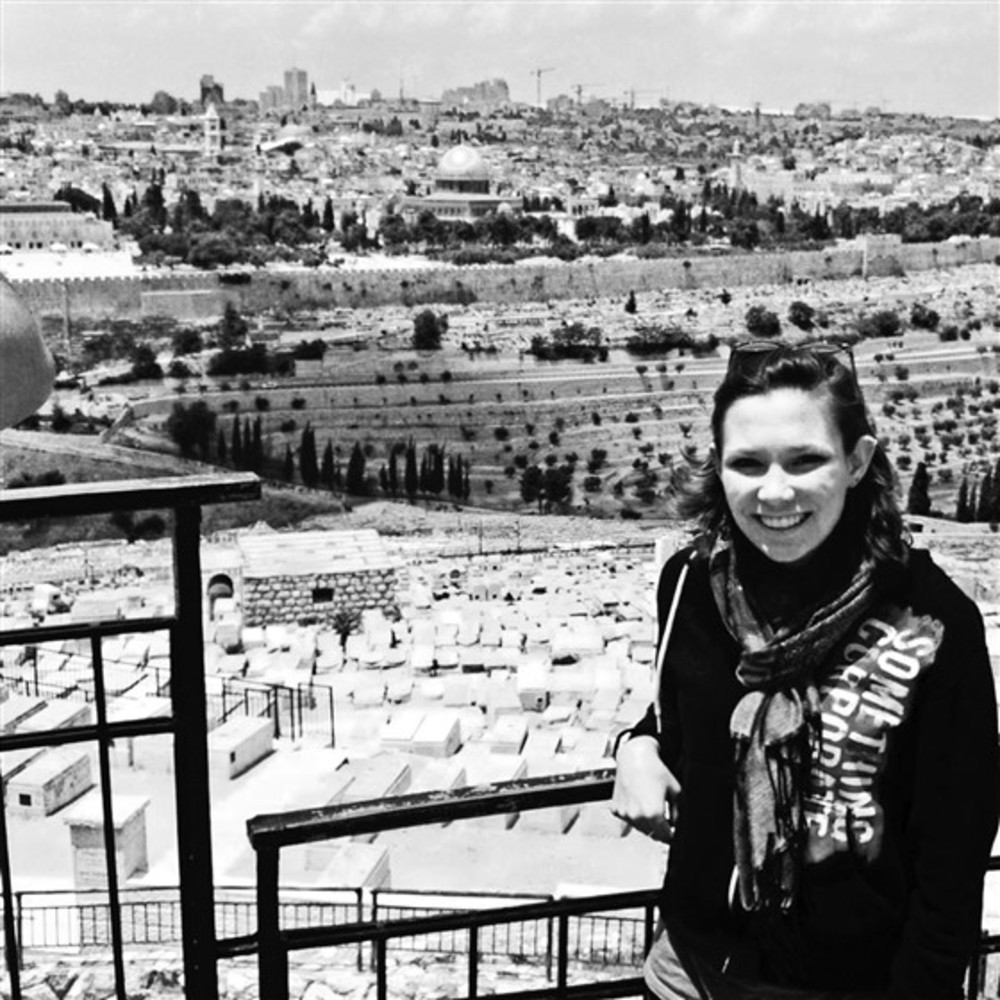One American’s perspective: The Israeli elections and an evening with Tzipi Livni
 Sarah Marasco in Israel. /Sarah Marasco
Sarah Marasco in Israel. /Sarah Marasco
TEL AVIV, ISRAEL – The first thing I learned in Israel is that there is no such thing as lines. Any form of order or organization is simply frowned upon in a society, comprised of a people that has been pushed around enough throughout history to ever accept the idea that their identity is only a shuk, no set prices, seats on the bus are on a first come, first shove basis. This concept of everyone having an equal opportunity to get what they want, and who ever wants it most is the winner, is reflected in all aspects of Israeli culture, including politics.
To understand Israeli politics is to try to understand the order of which customers are handled at the shuk, it’s almost impossible. To an American, Israel seems familiar on the surface, with two major political orientations, the left and right, yet they are completely different from our system. The two orientations don’t organize into two general parties in Israel, but diverge on a scale between the extreme left of Meretz, to the right of Bennett, with many shades in between. Just as anyone has the right here to cut in front of you at the shuk, so does any citizen of Israel have the right to form a political party and gain serious ground among friends in this tiny society.
In America, we often have limited options when we are forced to choose between two main political courses. In Israel there are too many options politically, with each one seriously impacting Israel internally and internationally. The wide range of choices for political leaders in Israeli politics reflects the many issues and concerns Israelis face. The number of problems in this new, rapidly developing country is expected. What is surprising is that every Israeli feels entitled to voice their concerns, and each is heard and possesses the power to run for office. Each person is viewed as having an equal, legitimate voice with potential to change society. Israel, a country often condemned by many as an apartheid government, allows Palestinians and others who are against the basic tenets of the Jewish state to be included into the government to which they are fundamentally opposed. This culture of disorder where everyone is equally able to push for whatever he or she wants creates a diverse political system that’s uniquely Israeli.
The political diversity keeps the political process personal. Instead of grand lecture halls and national committee meetings, the prime minister candidates often host intimate discussions at local cafes. This is a method I had never considered possible while living in America.
Tel Aviv International, a social organization for new olim (citizens), began to offer evening events in local bars to host any candidate who wished to talk to the international community in Tel Aviv. The amazing part is that these small events are free and allow anyone to pose questions to the candidate completely in English. If the Israeli political system was not diverse and complicated enough, with many demographics to appeal to, candidates consider the international, English-speaking community influential enough to personally address them in a language foreign to the candidates themselves. In the United States, a community of internationals would not be so intimately, informally approached by a presidential candidate, nor would the candidate agree to openly be asked uncensored questions, especially not in a different language.
The event hosted prime minister hopeful, Tzipi Livni, who gave a brief introduction of herself, her values, and goals if elected, before opening it up for questions from the audience. This was one of the most democratic events I’ve ever witnessed. This woman and all those who participate in these events embody the truest values of democracy. The ability for all to become politically involved, attend lectures and ask questions in a peaceful, relaxed setting, would be impressive to America’s founding fathers. In such a small country, every vote matters, and every individual has the potential to become elected and influence the nation’s politics. The diversity of people, opinions and beliefs so highly concentrated in this small country makes the democratic process full of various political parties and the value of the individual immense. I am amazed at the Israeli dedication to democracy, even though it is often depicted as an undemocratic state, I can say from personal experience, that Israel represents one of the most diverse, divided and truly democratic political systems in the world.
SARAH MARASCO grew up in Narragansett, attended the Prout School and is currently majoring in modern Jewish and Israeli Studies at Tel Aviv University. Upon graduating in June 2016, Sarah looks forward to returning to the states to become an advocate for Israel.







